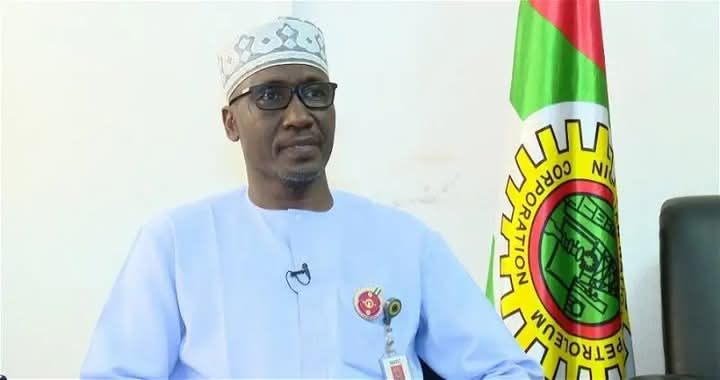As Mele Kyari approaches retirement, concerns rise over the impending leadership transition at NNPCL, sparking debates about succession plans and future direction.
Tensions are increasing in Nigeria’s oil and gas industry as Mele Kyari, the Group Chief Executive Officer of Nigerian National Petroleum Company Limited (NNPCL), approaches the end of his term.
Kyari, who will celebrate his 60th birthday on January 8, 2025, might soon resign from his position. This has led to speculation about who will assume leadership of the national oil giant.
Under Kyari’s leadership, substantial changes have taken place, such as converting NNPCL into a limited liability company in accordance with the Petroleum Industry Act (PIA) and initiatives aimed at enhancing transparency within Nigeria’s oil sector. There are worries that if he departs, these reforms may not continue smoothly and could impact the company’s strategic direction.
Numerous industry analysts are paying close attention, emphasizing that the stability of NNPCL is vital for Nigeria’s economy. As the country’s primary revenue-generating organization, any leadership disruptions could significantly impact the oil and gas sector, fiscal stability, and ongoing energy reforms.
This development occurred as other industry players noted that the Group Chief Executive Officer’s term is anticipated to end in 2027, aligning with Section 59 (2) of the Petroleum Industry Act 2021. This section specifies that “The composition of the Board of NNPC Limited shall be determined according to the Companies and Allied Matters Act and its Articles of Association.”
In July 2022, the NNPC transformed from a public corporation into a limited liability company, with Kyari transitioning from Group Managing Director to Group Chief Executive Officer.
Kyari, a seasoned professional in the oil industry, was appointed by former President Muhammadu Buhari in July 2019 and has accumulated 32 years of experience at NNPC.
His tenure of more than five years as the head of NNPC marks the longest period anyone has held this esteemed position in Nigeria’s oil industry since the nation transitioned to democracy in 1999.
Since its establishment in 1977, the NNPC has been led by 19 managing directors. Among them, only two hailed from the South-West and North-Central regions: Professor Funsho Kupolokun (Ondo State) who served from 2003 to 2007, and Augustine O. Oniwon (Kogi State), whose term was from 2010 to 2012.
Kyari, along with the Chief Executive of the Nigerian Upstream Petroleum Commission, Gbenga Komolafe, is among the few appointees retained by President Bola Tinubu and has not yet been dismissed.
Recently, Farooq Kperogi, a Nigerian professor of journalism based in the United States, criticized Tinubu for his persistent Yoruba-centric approach to taking over the NNPCL.
In an article called “Tinubu’s Buharisation of the NNPC,” Kperogi accused President Tinubu of filling key positions at the Nigerian National Petroleum Company Limited with Yoruba individuals.
Reports indicated that an anonymous source alleged Bayo Ojulari was being considered for the position of GCEO of the NNPCL following the end of Mele Kyari’s term.
Additionally, Nasir El-Rufai, the former Governor of Kaduna State, commented on X stating that two wrongs do not make a right. This remark is thought to reference Buhari’s preferential treatment of northerners in his appointments.
However, the former governor of Kaduna urged for sensible inclusion rather than what he characterized as arrogant exclusion.
The post stated, “DECEMBER MESSAGE: Two wrongs don’t make a right. Thoughtful inclusion always surpasses arrogant exclusion!”
The article triggered a strong and widespread response, prompting NNPCL spokesperson Femi Soneye to clarify that ethnicity, tribe, religion, or political affiliation do not influence employment decisions such as promotions, appointments, and leadership changes within the company.
Soneye stated that the considerations continue to be merit, business needs, and expertise.
The hiring, promotion, appointment, and movement of business leaders at NNPC are based solely on merit, business needs, and expertise. Factors such as ethnicity, tribe, religion or political affiliation do not influence these decisions.
He stated, “This approach guarantees that only the most qualified and competent individuals fill roles essential to the company’s success. Importantly, our company prioritizes efficient and effective service delivery, supported by the dedication of a skilled team.”
The spokesperson also stated that the President has not interfered in any manner with the operations or leadership changes within the NNPC.
In November 2023, President Tinubu authorized the appointment of a new board and management team for the national oil company while retaining Kyari as the Group Chief Executive Officer (GCEO).
In response to remarks about the potential dismissal of Kyari as NNPCL chief, Soneye stated, “These allegations are completely untrue and misleading. They lack credibility and appear manipulated. The GCEO has had an outstanding tenure with numerous groundbreaking achievements for NNPC Ltd. Please ignore these unfounded and questionable assertions.”
However, a follow-up question regarding the expiration date of the GCEO’s tenure received no response from NNPCL’s spokesperson by the time this report was filed.
Peoplesmind


